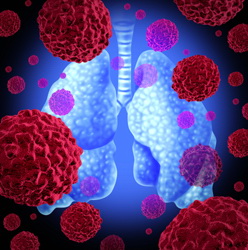The two faces of transforming growth factor B
Mutations of TGFB are often the cause of cancer. Changes in genetic code lead to the cell being unresponsive to the anti-proliferative signal of the protein. TGFB can therefore behave as a tumour promoter and, ironically, in the late stages of tumour formation, induces metastasis. The 'Role of E3 Ub-ligases in TGF-beta signaling and tumorigenesis' (E3ANDTGFBINCANCER) project investigated the identity of genes that were able to modulate the dual identity of TGFB, a key molecule in the development of many cancers. Project researchers found that the gene coding for a protein called Arkadia was absolutely central to the cell response to TGFB. Arkadia contains a really interesting new gene (RING) domain that confers ubiquitinase activity, meaning it degrades a natural repressor of the TGFB pathway and therefore activates the TGFB signal. Project scientists isolated a mutated Arkadia without the RING domain in a lung cancer cell line. Restoring Arkadia activity, the team found that the repressor degradation was restored and with it, TGFB activity. Even more significantly, researchers' results indicate that Arkadia is essential for induction of metastasis. With the emphasis firmly on Arkadia, project scientists looked for new modulators and substrates for this key molecule. Using the candidate approach and two-hybrid screening, several proteins and enzymes came to light. These included an adaptor protein that regulates other signalling pathways as well as stabilising and therefore enabling Arkadia to fulfil its biological functions. The two-hybrid screen for interacting proteins revealed a surprising partner for Arkadia and a potentially new role. The strongest interactant is an enzyme involved in sumoylation – post-translational modifications to proteins –normally linked to stabilisation or transport and regulation. Project members are currently continuing investigation into Arkadia's role in sumoylation. E3ANDTGFBINCANCER results have shown that Arkadia is mutated in lung cancer and is linked to metastasis. Future research is pointing towards finding out if Arkadia is overexpressed in late stages of cancer or is linked to bad prognosis. By characterising the precise molecular details of Arkadia, new interactions and targeted therapies for proliferation potential can be developed. Avoiding the major developmental jump of a cancer to the metastatic stage may also be on the horizon.







